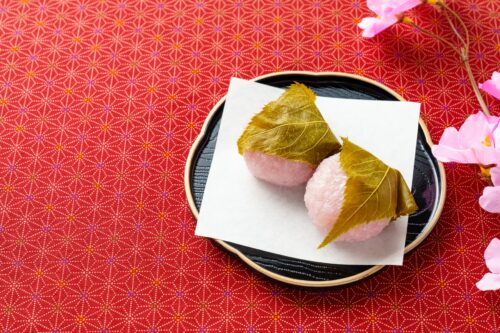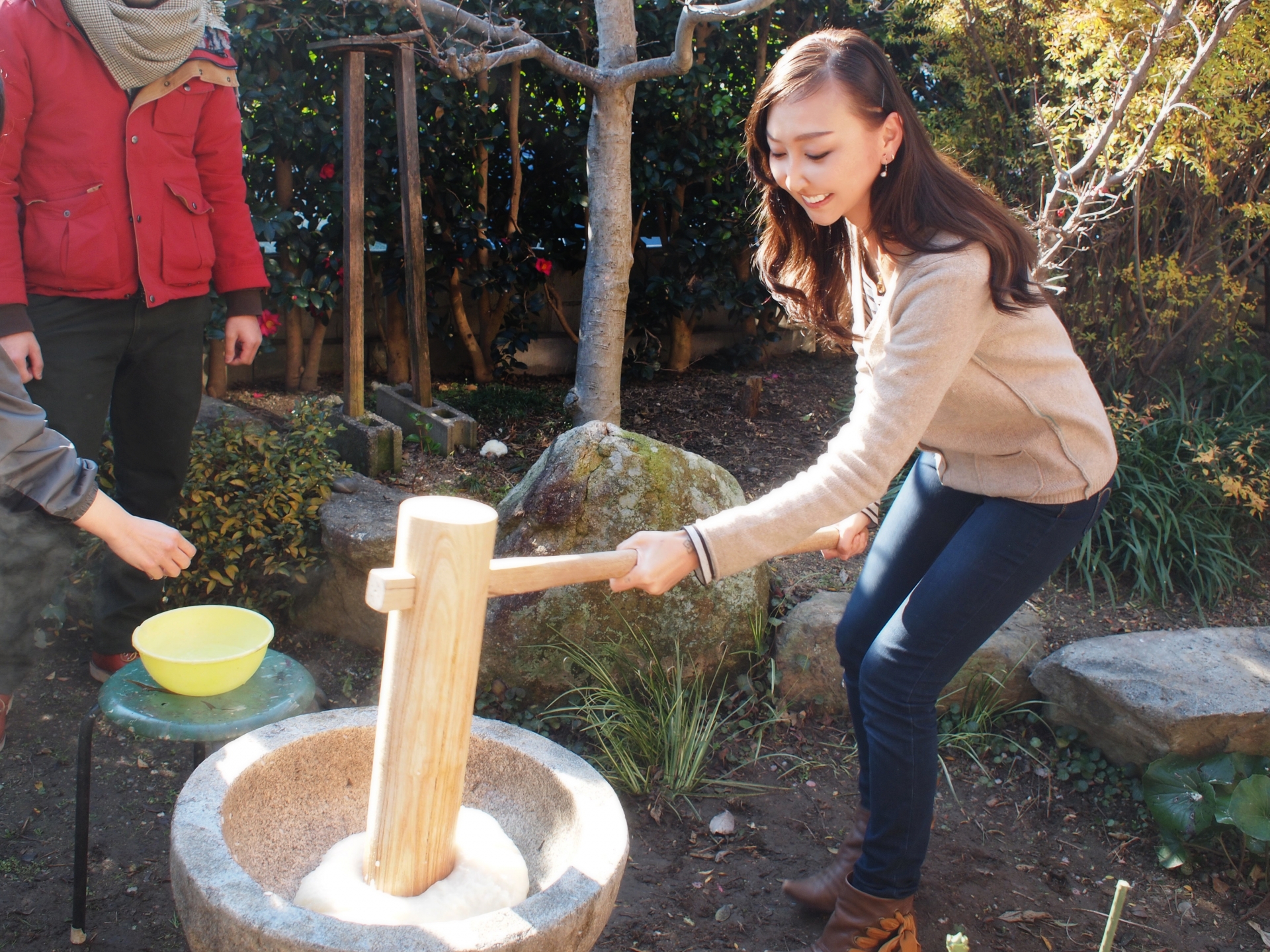The deadly delicacy: A threat to the nation
Mochi (rice cake), made by pounding steamed rice, is a staple of the Japanese diet. Have you ever eaten mochi? If the answer is yes, and you are still alive to read this, you must be truly blessed.
Do you know how many people, on average, lose their lives every year by choking on mochi in Japan? The number is approximately 300. Rationally, we should probably prohibit mochi or impose a heavy tax on it, like narcotics and alcohol. Yet, there has been no such momentum in the National Diet. I’m afraid that even those in the center of power seem to be captives of its addictive taste.
Mochi has a long history, dating back to 660 BC. It was originally an offering to the gods and remains a food for special days. Risk-addicted people like me eat it regularly, but it is fundamentally a seasonal food. My personal favorite is Sakura-mochi in March, wrapped in a salted cherry leaf. Eating the salted leaf enhances the sweet bean paste within—a truly luscious and, paradoxically, dangerous delicacy.

Pounding rice: A lost ritual of hard work and unity
The main season for mochi is definitely the year-end and New Year period. This is reflected in statistics: More than 40% of mochi-related choking deaths occur in January.
While it is becoming scarce now, it was once common for each family to pound rice (Mochi-tsuki) at home at the end of the year. As I’ve written before, the New Year is a time for deep cleaning the house as a ritual to invite happiness. Mochi-tsuki served the same function: it was a physical, communal ritual marking the close of the year.
Mochi-tsuki has fallen into disuse because it requires immense effort and specialized skills. You have to bring out a heavy mortar, and pound the rice with a huge wooden pestle until it transforms into dough. If you look up the YouTube video below, you will see it is extremely hard work requiring synchronized rhythm and a good relationship between the pounder and the person turning the mochi.
The taste of tradition: Flour vs. Rice
Now that we are over 200 years past the Industrial Revolution, we make mochi in factories, not at home. Consequently, mochi is sold everywhere, and we can eat it whenever we want.
We don’t need to pound rice anymore, but there is a fundamental difference in taste: mochi made by pounding rice at home is completely different from the supermarket variety. And I promise you, this is not a psychological or nostalgic difference. Most commercial mochi is made of rice flour because mochi made of 100% rice stiffens quickly. I guarantee you will be deeply impressed if you taste real, fresh-pounded mochi
The sticky truth: From kitchen glue to furniture bond
Having said that, I haven’t pounded rice for mochi in years. What I truly dislike about the Mochi-tsuki process is the splash of rice water. It dries quickly, becoming a crusty layer on your body, making you feel as if you are covered in glue.
And here is where the culinary ritual connects to our craft: Rice paste was, in fact, once widely used as a glue, especially for wooden furniture. Wood and rice fit together exceptionally well because their expansion and contraction rates due to humidity are nearly identical. This is a traditional wisdom that survived for centuries.
So, as you enjoy your holiday mochi—or perhaps avoid it, for safety—remember this sticky truth. If you happen to use the traditional rice paste glue for your furniture repair during the year-end and New Year holidays, don’t forget to put some salt in the paste to prevent mold! Happy Holidays!
I confess that I am a risk-addict who values a delicious Sakura-mochi over my own safety, though I draw the line at being covered in rice-paste ‘glue’ during a DIY project. While I’ve retired my wooden pestle to avoid the sticky mess, our craftspeople have mastered the art of creating bonds that last longer than a New Year’s resolution. Our Hatsune Miku Art Chair is the ultimate ‘seasonal delicacy’ for your home—captivating, slightly dangerous to your wallet, and impossible to resist. Now, for your own safety, I must warn you: the image below is a link to our special site. If you have a low tolerance for addictive beauty and superior craftsmanship, do NOT click it. But if you’re ready to risk a little obsession for a seat that fits like tradition, go ahead. Just don’t forget the salt. —— The Hatsune Miku Art Chair.

Movie credit: https://www.youtube.com/watch?v=tmSrULDVRPc

Shungo Ijima
Global Connector | Reformed Bureaucrat | Professional Over-Thinker
After years of navigating the rigid hallways of Japan’s Ministry of Finance and surviving an MBA, he made a life-changing realization: spreadsheets are soulless, and wood has much better stories to tell.
Currently an Executive at CondeHouse, he travels the world decoding the “hidden DNA” of Japanese culture—though, in his travels, he’s becoming increasingly more skilled at decoding how to find the cheapest hotels than actual cultural mysteries.
He has a peculiar talent for finding deep philosophical meaning in things most people ignore as meaningless (and to be fair, they are often actually meaningless). He doesn’t just sell furniture; he’s on a mission to explain Japan to the world, one intellectually over-analyzed observation at a time. He writes for the curious, the skeptical, and anyone who suspects that a chair might actually be a manifesto in disguise.
Follow his journey as he bridges the gap between high-finance logic and the chaotic art of living!

